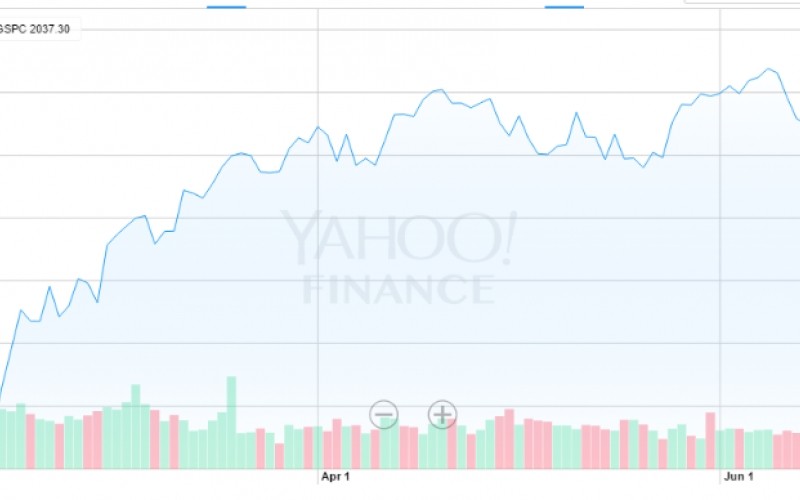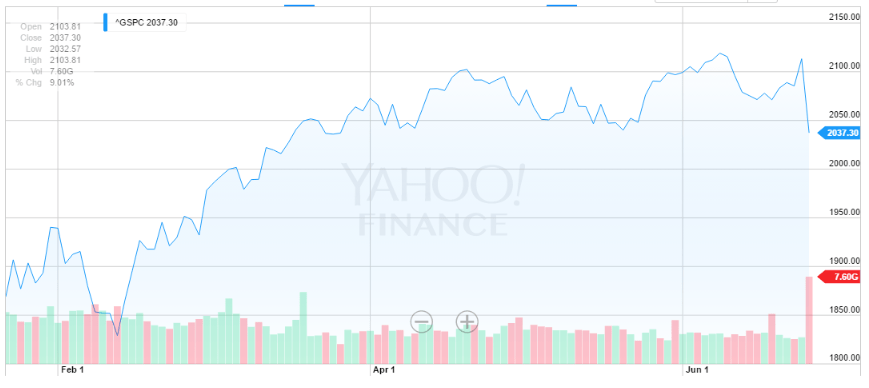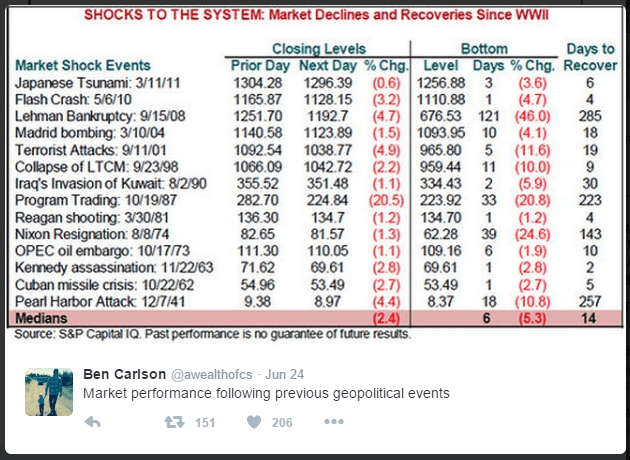What Does Brexit Mean for Individual Investors?

This week Americans are asking: What does Brexit mean for individual investors? The answer is: not much.
Here’s why.
If you follow financial news, you’ve undoubtedly heard the term Brexit for the past several months. If you’re like the average American, this word was introduced to you for the first time on Friday morning.
What’s Brexit?
As my wife and I were winding down for the evening on Thursday, my Twitter feed reminded me that the voting was underway in Great Britain. It occurred to me that I had never heard any mention of Brexit outside of Bloomberg, finance blogs and my Twitter feed.
To validate my theory that the general American population didn’t care about the possibility of Britain exiting the European Union, I asked my wife if she knew what Brexit was. Her confused reaction confirmed my hypothesis.
That all changed within 15 seconds of turning on Good Morning America the next day. Since waking up on Friday, Americans have been bombarded with the news that the Brits voted to leave the EU and that the stock market took a beating for it.
Americans are notorious for knowing very little about other countries’ affairs. Unless we majored in political science with an emphasis in European economics, we have no idea what the consequences of this referendum have on the world.
What does Brexit mean for individual investors like me?
We only care about how it affects us directly. We ask, what does Brexit mean for individual investors like me?
The two most common questions being asked by individual investors are:
- Is now a good time to buy?
- Is the stock market going to crash?
With the S&P 500 dropping over 3.5% on Friday, these appear to be reasonable questions. Stocks are either providing a great buying opportunity or are at the beginning of a free-fall…right?
Not necessarily. Let’s let the facts put some perspective on the situation.
Is now a good time to buy?
In regards to the first question – Is now a good time to buy? – the S&P 500 is at about the same level as it was on May 19 when it closed at 2,040. Furthermore, it’s 11% higher than its closing price on February 11.

Unless you thought stocks were selling at a discount a month ago – or even four months ago – it doesn’t make sense to say they’re selling at a discount now.
Is the stock market going to crash?
The second question – is the stock market going to crash? – isn’t as easy to determine. Market crashes – or any market movement for that matter – are impossible to predict.
What we can do is look at how the market has responded in similar situations.
Ben Carlson, author of “A Wealth of Common Sense,” recently tweeted the following info graphic showing the performance of the S&P 500 after major geopolitical events.
 [ Enlarge Image ]
[ Enlarge Image ]
The graphic shows how much the market fell on the days succeeding each event and how long it took before getting back to a break even point. Everything from the attack on Pearl Harbor to the relatively recent tsunami in Japan is documented.
What’s clear is that the market does not like uncertainty. Each of the featured events represent moments of global uncertainty.
As these events were unfolding, people had no idea how their lives would be affected or what the political ramifications would be. People were scared and stocks went down.
Markets always recover
It’s important to note that the market recovered every time. Sometimes much quicker than others, but it recovered nonetheless.
Of the 14 events shown, only four took longer than 30 days to get back to a break even point. The median recovery time was only two weeks.
The four instances that took more than 14 days to recover took much longer than 14 days to recover. The median of these four events was a whopping 240 days. When removing these four events from the equation, the median for the remaining 10 events was nine days.
So when asking the question “what does Brexit mean for individual investors?,” the question becomes “is Brexit more similar to the four events with a median recovery period of 240 days, or to the 10 events with a median recover period of 9 days?”
Long-recovery events
Let’s look at each of the four long-recovery events individually and decide whether there are any similarities with Brexit.
- Attack on Pearl Harbor: It’s safe to say Brexit is not the same as a World War where European countries were annihilating each other and Japan was determined to destroy America.
- Nixon resignation: Well, David Cameron has announced he’ll be stepping down as Prime Minister but it’s not in the same context as Nixon being forced out of office due to corruption. Also, considering the market recovered two days after JFK’s assassination, it’s clear that the market decline following Nixon’s resignation was due to other economic calamities.
- Black Monday (program trading): This was a true stock market collapse. The S&P 500 fell over 20% in one day. The biggest one-day decline since the crash of 1929. The origins of this event were fundamental issues related to over-leverage and lack of liquidity on the part of market speculators. Completely different than Britain voting to leave the E.U.
- Lehman Brothers declaring bankruptcy: When Lehman Brothers declared bankruptcy, the Great Recession was already underway. Americans were defaulting on their mortgages left and right, and the country’s top financial institutions desperately needed lifelines in order to stay afloat. It’s true that the banking industry is likely to be the industry most affected by Brexit. However, this isn’t because of fundamental defects in the individual financial companies. Nor is it due to serious flaws in the American economy.
Worst case scenario
So, what does Brexit mean for individual investors? In the long run, not much.
While it’s hard to say what the long-term repercussions of Brexit will be on American investors, it’s safe to say the situation is not as severe as the four events discussed above.
Even if a quick recovery does not ensue, the recovery period after the Lehman bankruptcy was only285 days. That’s less than 10 months.
Ten months can seem like a lifetime for panicked investors with no perspective, but it’s just a blip in time for patient, experienced investors.
Stocks always fall during times of uncertainty. They also always recover from sudden drops. These recoveries happen sooner than people realize.
If there is a stock market crash in the near future, the likelihood is that Brexit will not be the sole cause of the collapse.
Mitchell Mauer is the Founder of TheStockMarketBlueprint.com. The Stock Market Blueprint is a free site that finds value stocks for investors building long-term wealth. The site’s investment philosophy is anchored in principles established by Benjamin Graham and his most reputable followers over the last 100 years.








